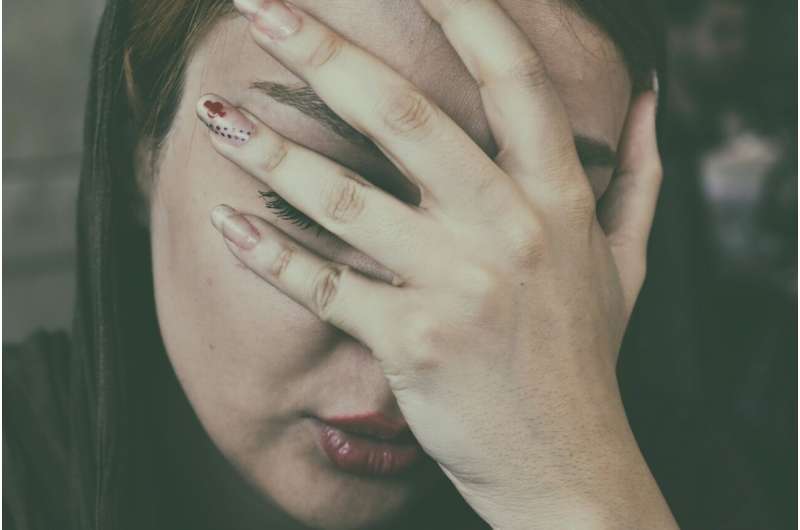This article has been reviewed according to Science X's editorial process and policies. Editors have highlighted the following attributes while ensuring the content's credibility:
fact-checked
trusted source
proofread
Abdominal fat linked to widespread chronic pain, especially in women

Excess abdominal fat is associated with widespread chronic pain, particularly in women, finds the first study of its kind, published in the open access journal Regional Anesthesia & Pain Medicine.
Reducing excess fat deposits in the abdomen may help reduce chronic musculoskeletal pain, especially if it's experienced at multiple body sites, suggest the researchers.
Previously published research has shown that obesity is associated with musculoskeletal pain, but it's not known if excess fat tissue is linked to chronic musculoskeletal pain and at multiple body sites, say the researchers.
To find out, they drew on data for 32,409 participants in the UK Biobank study who completed questionnaires and underwent health assessments. Around half (51%) were women, and their average age was 55.
They underwent MRI scans of their abdomen to measure the amount of fat around the abdominal organs (visceral adipose tissue or VAT) and the amount of fat just under the skin that can be pinched (subcutaneous adipose tissue or SAT).
When attending for their scan, participants were asked if they had experienced any pain in their neck/shoulder, back, hip, knee or 'all over the body' for more than 3 months.
The MRI scan and pain assessments were repeated around 2 years later for 638 participants.
Comprehensive analyses showed a dose-response association between the number of chronic pain sites and VAT, SAT, the ratio of the two, and weight (BMI).
The association was stronger in women among whom the odds ratio of a higher number of chronic pain sites were twice as high for VAT, and 60% greater for both SAT and the VAT:SAT ratio. In men, these odds ratios were 34% 39%, and 13% higher, respectively.
Higher levels of fat tissue were also associated with greater odds of reporting chronic pain, and again the association was more pronounced in women.
All these associations remained even after adjusting for age, height, ethnicity, household income, educational attainment, alcohol intake, smoking status, physical activity, coexisting conditions, sleep duration, psychological problems and length of follow-up.
This is an observational study, and as such, can't establish cause and effect, and the authors also acknowledge various limitations.
These include the relatively small size of the repeat imaging sample, and the absence of an assessment of severity in the pain questionnaire. More follow-up visits would also have allowed more information to be gathered on patterns and fluctuations in the number of chronic pain sites, they add.
But they conclude, "Abdominal adipose tissue was associated with chronic musculoskeletal pain, suggesting that excessive and ectopic fat depositions may be involved in the pathogenesis of multisite and widespread chronic musculoskeletal pain."
They add, "Therefore, reducing abdominal adiposity may be considered a target for chronic pain management, particularly in those with pain in multiple sites and widespread pain."
And they suggest that the stronger associations seen in women may be a consequence of sex differences in fat distribution and hormones.
More information: MRI-derived abdominal adipose tissue is associated with multisite and widespread chronic pain, Regional Anesthesia & Pain Medicine (2024). DOI: 10.1136/rapm-2024-105535



















